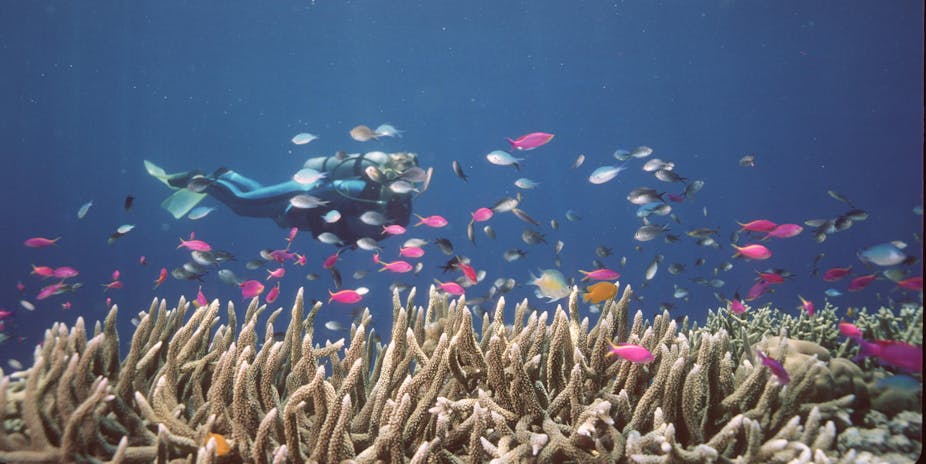Whether it’s sailing across turquoise waters, admiring a sea view or being able to pop a shrimp on the barbie, on World Oceans Day it is fitting to reflect on how most people derive some benefit from our oceans and coasts.
But despite the many ways in which we enjoy the ocean, we’ve done a poor job of valuing its bounty. With some notable exceptions, such as fisheries, many coastal benefits to society go unrecorded, unrecognised and under-valued.
Some coastal benefits are so obvious that they are taken for granted, such as having a safe, calm, and clean place to swim. Other benefits go unrecognised because of a lack of appreciation for how coastal ecosystems work.
For example, much of the white sand we enjoy when visiting a tropical paradise originates from living coral reefs offshore.
If those reefs suffer because of unregulated development and poor sewage treatment, the natural supply of sand has to be replaced by physical dredging of the seabed.
Not only is this expensive, but it exacerbates the problem by smothering what’s left of the reef. This type of ill-conceived coastal practice is surprisingly commonplace and reflects a disconnect between science and decision-making.
It is also one of the major reasons that coastal environments are degrading world-wide.
Coastal development is important, but without careful oversight the benefits are often enjoyed by a few and at significant cost to many.
In Mexico’s Riviera Maya, for example, the profits from hotel development usually benefit a handful of overseas investors whereas the environmental costs, in terms of poor sanitation and degrading ecosystems, are borne by the wider local population.
This inequity occurs, in part, because the perceived benefits of coastal development and exploitation often outweigh the real, though poorly quantified, value of retaining the ecosystem intact and in a healthier state.
Valuing the natural, not to mention free, benefits of a unpolluted, healthy coastal environment, exploited sustainably, and maintained intact rather than cleared for development is challenging.
Many of the benefits occur through subtle submarine processes, unseen by people.
Mangroves, for example, provide a nursery for young fish and lobster which eventually migrate offshore and enter the fishery.
Many people are unaware that their seafood may rely on mangroves and therefore see no problem in replacing this muddy and odorous ecosystem with car parks and resorts.
Similarly, few people equate the dazzling sand of a Fijian beach to the health of the coral reef offshore.
In order to continue enjoying our coasts we have value their benefits to peoples’ health, wellbeing and livelihoods.
Only then can we have a transparent and level playing-field from which to make informed decisions on how best to manage our coasts for everyone’s benefit.
If more people were fully informed of the threats to their coastal amenity and livelihoods then we might begin to resolve the crisis of motivation that currently prevents us managing many coastal environments for the benefit of the majority.
Science can help by demonstrating the various ways in which people benefit from the oceans and identifying the threats posed by some human activities.
It is not rocket science; it requires people to demand fair decision-making and transparency from their local government.
Today is World Oceans Day. Please take a moment to reflect on how you benefit from the ocean. You might be surprised by what you discover.

